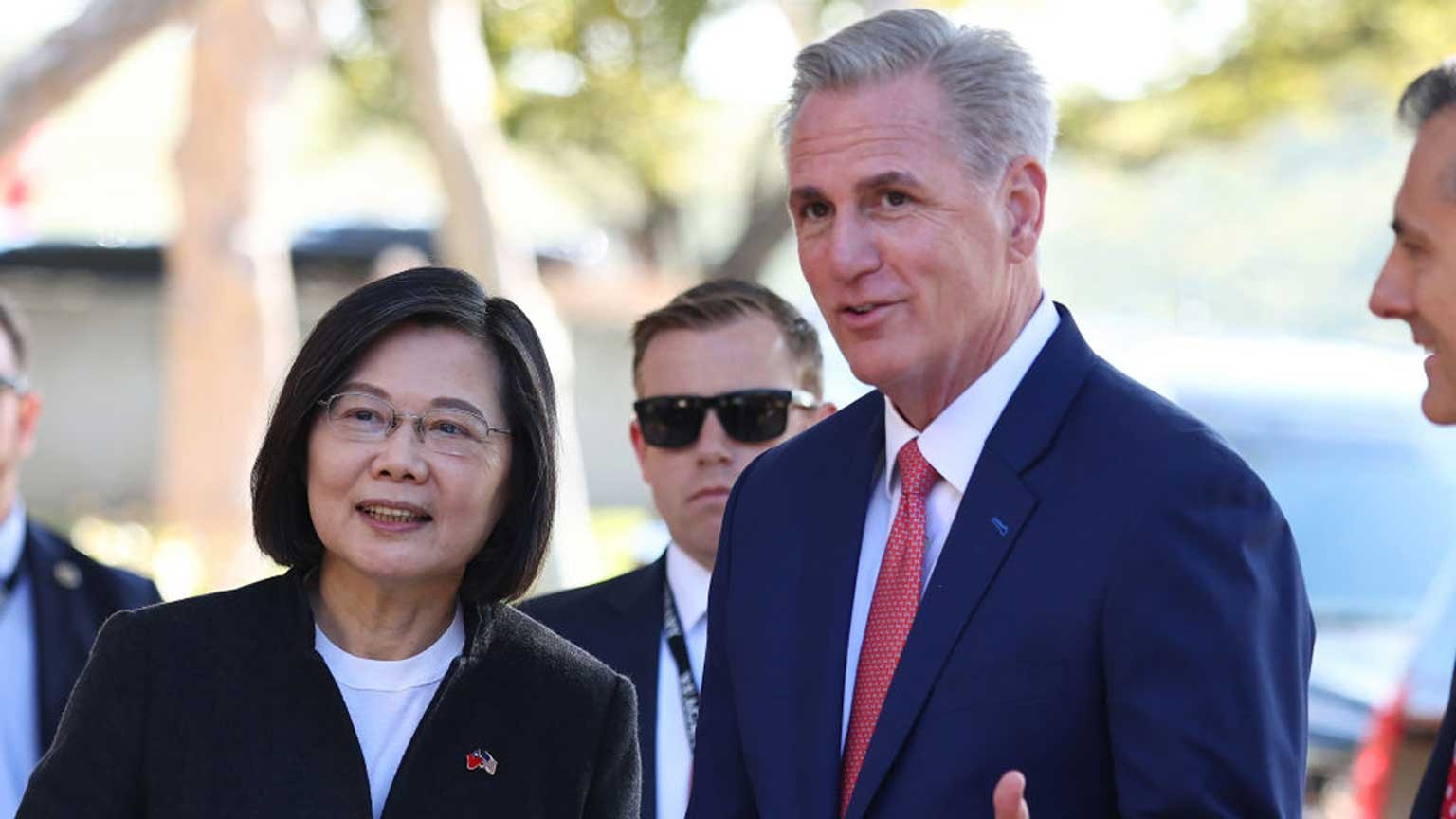Tsai held talks with McCarthy and other lawmakers from both the Republican and Democratic parties at the Ronald Reagan Library.
At a news conference following the meeting, Tsai said, "The peace that we have maintained and the democracy that we have worked hard to build are facing unprecedented challenges."
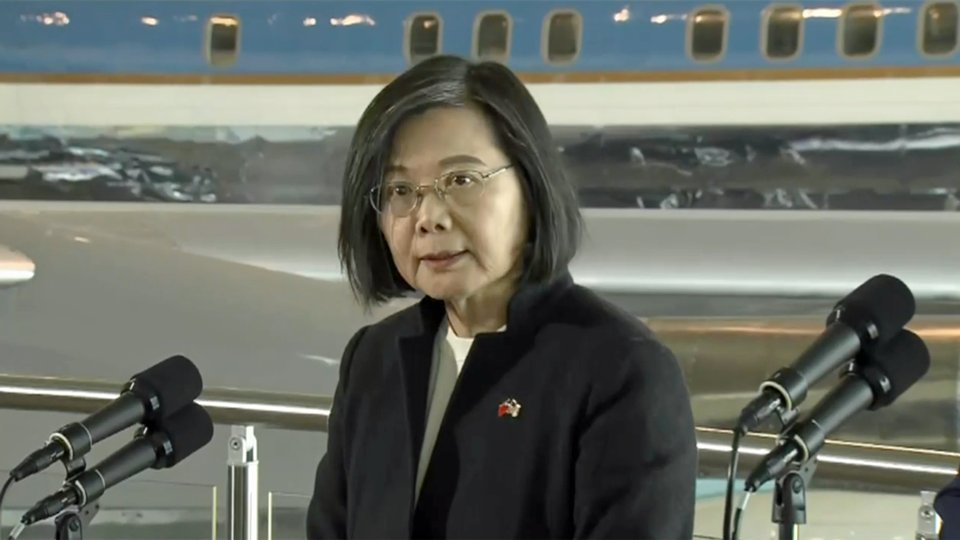
McCarthy added, "The friendship between the people of Taiwan and America — as a matter of profound importance to the free world — is critical to maintain economic freedom, peace and regional stability."
McCarthy is the most senior lawmaker to meet with a Taiwanese leader on US soil.
Tsai met with McCarthy's predecessor, Nancy Pelosi, in Taipei in August. Chinese leaders responded to that visit by staging their largest-ever military exercise around Taiwan.
Blinken downplays Tsai's stopover
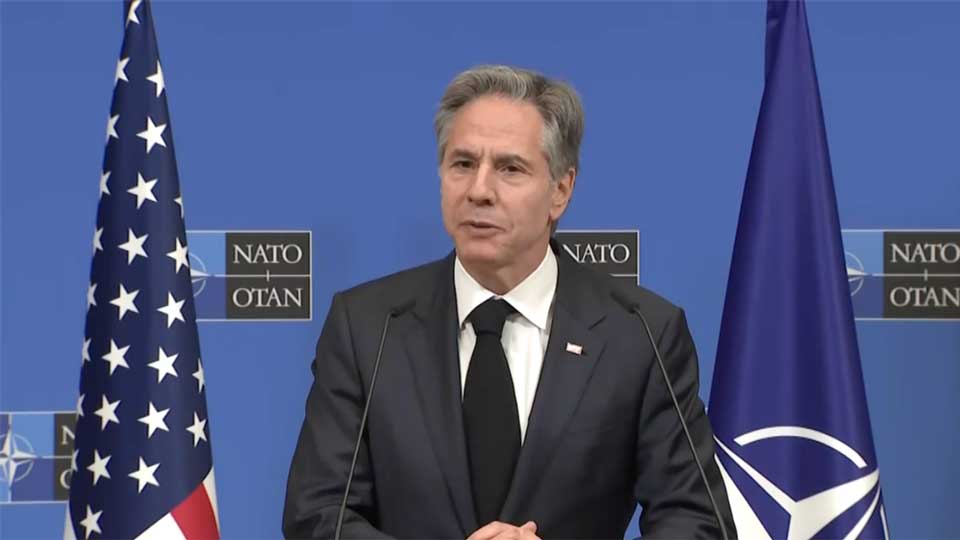
US Secretary of State Antony Blinken has downplayed Tsai's stopover, describing it as "private" and "unofficial."
He added that presidents of Taiwan have made transit stops in the US before.
Blinken urged Chinese officials not to use "the transit" as an excuse to "take any action to ratchet up tensions."
China protests meeting
China strongly protested the meeting, with the Ministry of Foreign Affairs saying it was held "in disrespect of the stern representations and repeated warnings lodged by China."
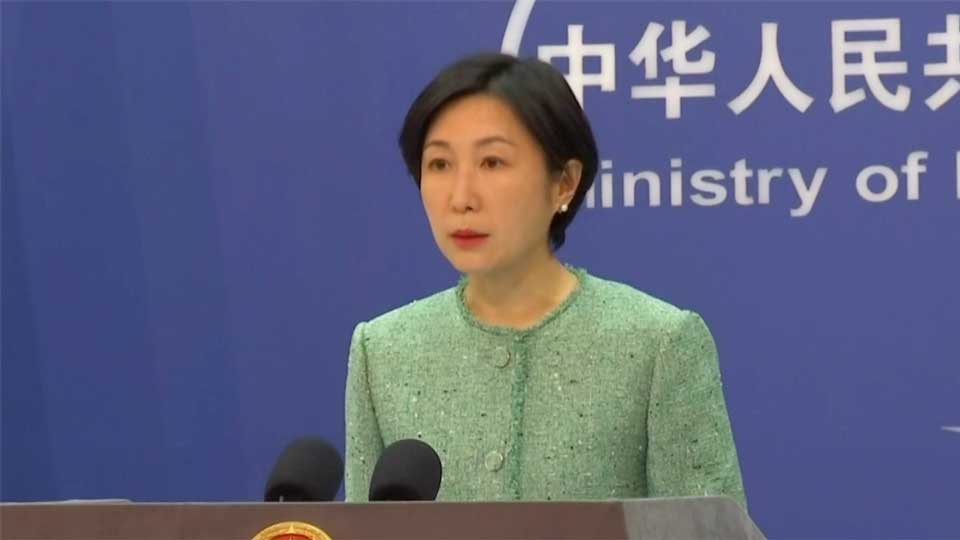
The statement said the meeting violated Beijing's "One China Principle" and sent "seriously wrong signals to the separatist forces."
It added, "China will take resolute and effective measures to safeguard national sovereignty and territorial integrity."
The Ministry of National Defense, the Foreign Affairs Committee of the National People's Congress, and the Taiwan Affairs Office of the Communist Party of China also issued statements criticizing the meeting.
Japan's top government spokesman comments on meeting
Japan's Chief Cabinet Secretary Matsuno Hirokazu says Japan is closely monitoring the situation.
He said that the peace and stability of the Taiwan Strait is important not only for Japan's security, but the stability of the international community as well.
Expert: Taiwan is most "potentially explosive" issue in US-China relationship
Bonnie Glaser, an expert on Chinese foreign policy, calls Taiwan the most sensitive and "potentially explosive" issue in the US-China relationship and warns it could trigger a war between the two countries.
She says McCarthy and the other Congress members held the meeting to signal to Beijing that the US is stepping up its support for Taiwan and that any use of force would be unacceptable.
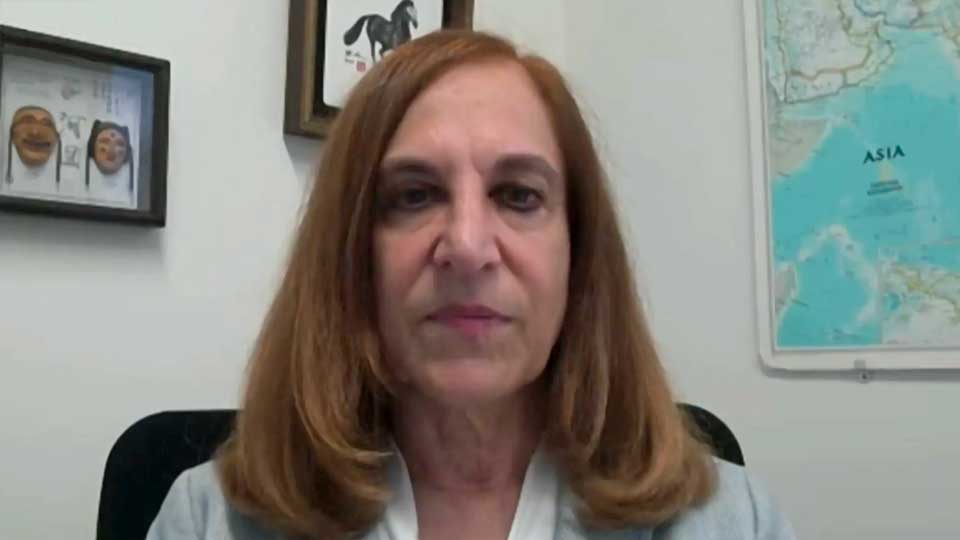
Glaser believes the relationship between the US and China is at its lowest point since the establishment of normalized relations in 1979, citing an absence of regular communication between the two governments.
She says China is convinced the US is trying to contain its rise.
"Managing our differences over Taiwan will help to lower tensions in the relationship," she says. "And failing to manage those differences well could be very consequential."
Washington's approach to Taiwan
Beijing's "One China principle" stipulates that Taiwan is part of China, and the government of the People's Republic of China is the "sole legal government representing the whole country."
US policy on the "One China principle" is guided by the Taiwan Relations Act of 1979; the three US-China Joint Communiques issued in 1972, 1979, and 1982; and the Six Assurances of 1982.
The assurances were presented to Taiwan by then-President Ronald Reagan. They include:
- The US will not set a date to terminate arms sales to Taiwan.
- The US will not consult with China in advance before making decisions about arms sales to Taiwan.
- There is no change to the US position on Chinese sovereignty over Taiwan.
When Tsai visited the Ronald Reagan Library in 2018, that time on a stopover during a tour of Central and South America, she praised the library's namesake and said the Six Assurances serve as an important basis for US policy toward Taiwan.
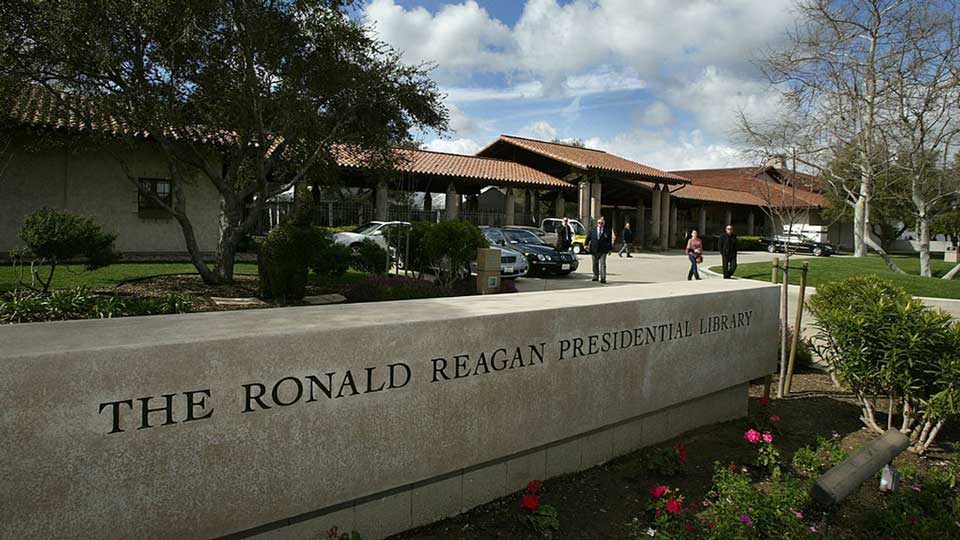
The Ronald Reagan Library is located in Simi Valley, California. It houses photos and documents, including records of a summit meeting with former Soviet leader Mikhail Gorbachev. The presidential aircraft Air Force One is also on display.
Analysis: US pushing "stopover" stance
NHK World's Washington Correspondent Tsuji Kohei has been following the trip. Here's what he had to say from Los Angeles:
"The meeting between Tsai and McCarthy was carefully planned to try not to provoke China too much. It was held in his home state of California, not in Taiwan. Officials framed it as taking place just because Tsai happened to be in the region."
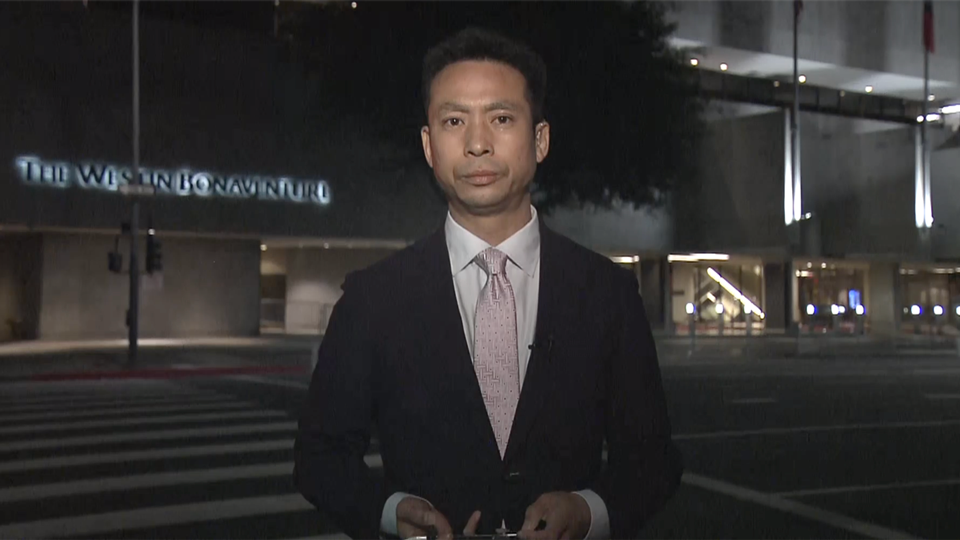
"The White House is trying to downplay things because it doesn't want China to respond like it did last summer when the country conducted a massive military exercise near Taiwan after the previous House Speaker visited Taiwan."
"The Biden administration points out that Tsai has had similar stopovers and met US lawmakers here in the country multiple times before. White House Press Secretary Karine Jean-Pierre told me that President Tsai's visit is private and unofficial and they see no reason for Beijing to turn this transit, which is consistent with longstanding US policy and practice, into something that is not."
Analysis: Beijing opposes meeting but may not carry out military response
NHK World's Nishiumi Naoko has been following the event from Taipei. Here's what she had to say:
"It was a show of unity with some Washington heavyweights. And it's significant that while Taiwanese presidents have made stopovers in the US before, they've never used the occasion to hold such a high-profile meeting."
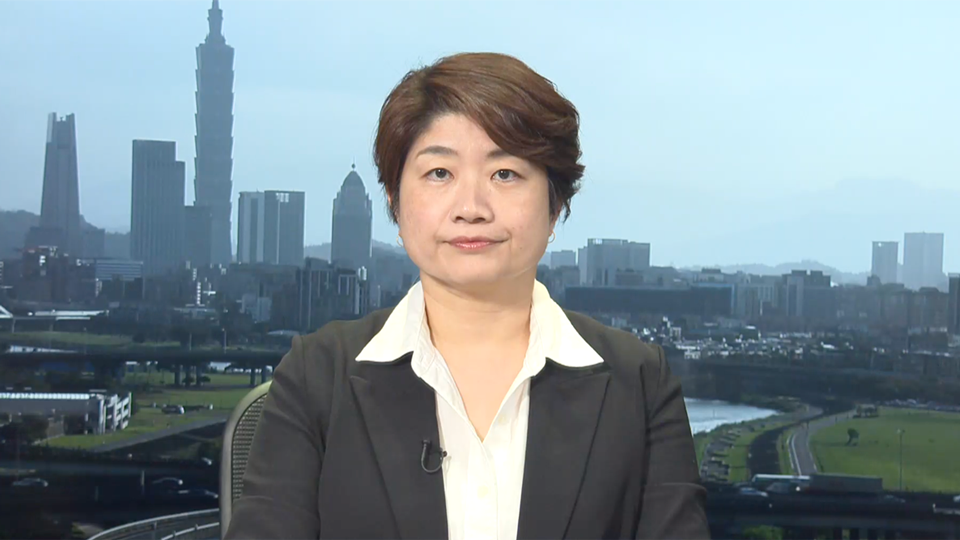
"After the meeting, the Chinese foreign and defense ministries issued statements expressing strong opposition. But there haven't been any military reactions we could categorize as retaliations yet, and we may not see them. That's because Taiwan will have a presidential election next January and Beijing doesn't want any heavy-handed reaction to tip the scales towards Tsai's ruling Democratic Progressive Party."
"On the other hand, China's leaders can't afford to look weak after Tsai's visit. That may explain the warm welcome they gave former Taiwanese President Ma Ying-jeou recently. He's still a heavyweight in the main opposition party and has been advocating for the 'One China principle.' So, I think China's leadership has a fine line to tread."
